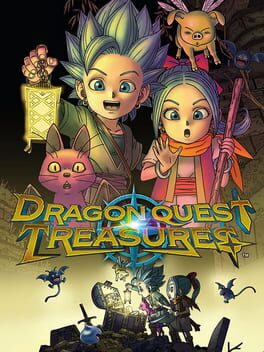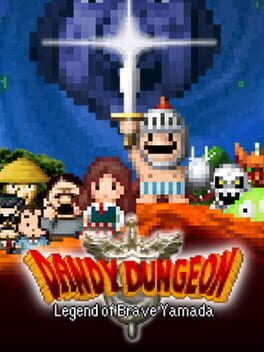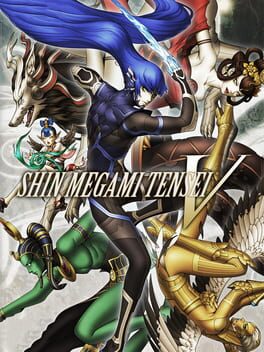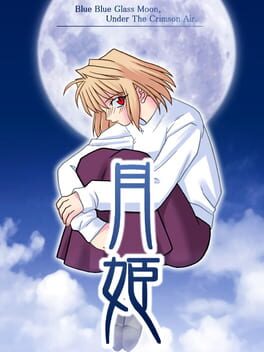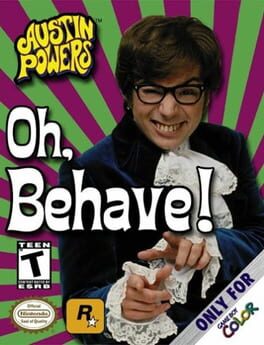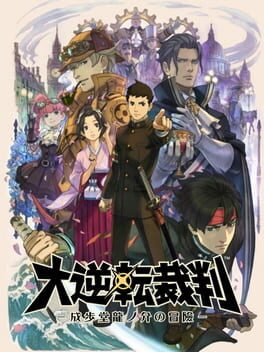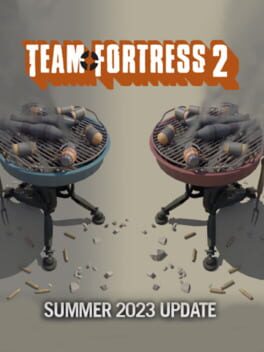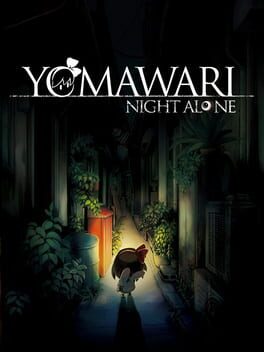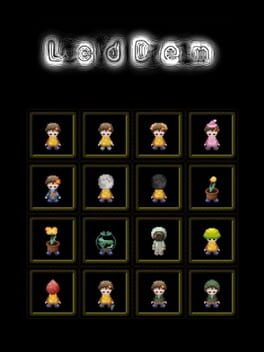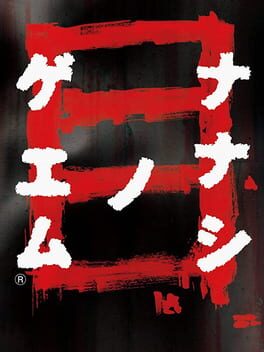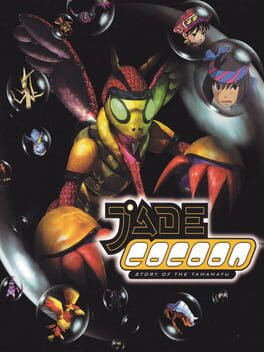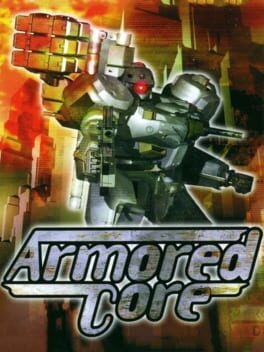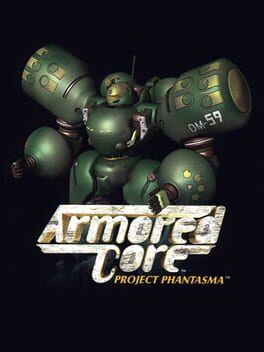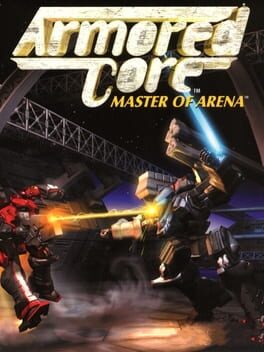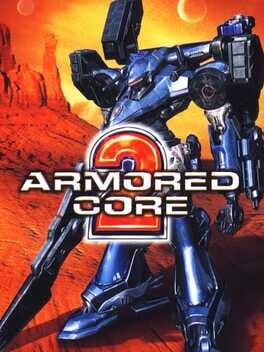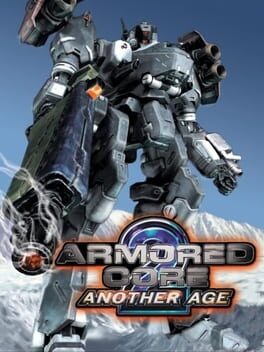GrooviestPine
30 reviews liked by GrooviestPine
I went into Dragon Quest Treasures fairly blind, all I knew (or needed to know!) about the game was that it's a Dragon Quest XI prequel about popular party member Erik and his sister Mia befriending monsters and searching for treasure. This sort of setup with a built-in hook is actually kind of standard for Dragon Quest. We've got spinoffs about Torneko, Yangus, that one smug guy from VII, and Monsters itself as a sub-series is basically just taking V's monster gimmick and running with it. I knew this stuff going in. I'm gonna hang out with my buddy Erik as a young'n and hang out.
What I did NOT expect was the absolutely insane, brilliant, addictive, joyous, dastardly gameplay loop of this fucking thing. Once you break into the meat of the game, you will be turned into an absolute tycoon with an army of monsters acting as truffle hounds at your disposal. Wake up by the campfire, set out on the open terrain and let those fuckers loose as they get to sniffing up valuable goodies made out of 3D models of Dragon Quests past. Fan service fuels the fire in your heart to absolutely rip this shit up and cash in for LUDICROUS amounts of money. Amounts that'll make your eyes spin like slots and show up as dollar signs. It's amazing. Feels wonderful. A game that makes you feel the way that health-conscious moms do when they describe a chocolate cake as "sinful".
So yeah, you play as a rascal in this one and you certainly feel like one too. TONS of fun that doesn't overstay its welcome, don't miss it because it's bound to be overlooked in a weirdly stacked season of mid-budget JRPGs.
What I did NOT expect was the absolutely insane, brilliant, addictive, joyous, dastardly gameplay loop of this fucking thing. Once you break into the meat of the game, you will be turned into an absolute tycoon with an army of monsters acting as truffle hounds at your disposal. Wake up by the campfire, set out on the open terrain and let those fuckers loose as they get to sniffing up valuable goodies made out of 3D models of Dragon Quests past. Fan service fuels the fire in your heart to absolutely rip this shit up and cash in for LUDICROUS amounts of money. Amounts that'll make your eyes spin like slots and show up as dollar signs. It's amazing. Feels wonderful. A game that makes you feel the way that health-conscious moms do when they describe a chocolate cake as "sinful".
So yeah, you play as a rascal in this one and you certainly feel like one too. TONS of fun that doesn't overstay its welcome, don't miss it because it's bound to be overlooked in a weirdly stacked season of mid-budget JRPGs.
the story of this game is like no other one. in 2016 the company responsible for some of the most strange and heartfelt interpretations of videogames i’ve seen decided to make a game using some of the most evil, exploitative monetization tactics ever devised. it feels surreal at times. it’s like watching papyrus and sans trying to sell me nft’s or something. granted, the game was rereleased in 2019 as an actual videogame that you buy once with money (this is the version i will be effectively reviewing.) despite a few hitches i think that it made the transition into real-game-hood quite elegantly all things considered and i praise the efforts of any studio willing to convert live service games into something that can be meaningfully experienced past the game’s lifespan. it’s still weird as fuck though.
i’ll tell you right now, the game is good. if you like the writing in moon and chulip, this game has it in spades! it is a game about a game developer that is written by game developers, and if 90% of studios try some shit like that it looks pathetic. onion is an easy exception though. they nail it. the gameplay might not be for everyone, but as someone who loves small form puzzles and long-term roguelite progression, this game is crazy good. if there’s one thing i genuinely appreciate about the game’s exploitative roots it’s how extremely grindy it is. it will b grating for most people, but i love running something small over and over trying to get the drop i need. some of the bigger dungeons end up requiring a little too much focus for my taste, but for the most part it’s so fun to turn my brain off and blast yamada through a room full of slimes and skeletons over and over until i get a sword with 5 more attack than my last sword.
so, as someone who briefly looked at this game at launch and only relatively recently learned it got rereleased as an actual game a question plagued me: how the fuck does all the pay to win garbage work? if you haven’t seen the game in either state, the main “pay to win” element of the original game is the rice ball. an infinitely reusable revive item. well as infinite as your wallet anyway (<- if any article written about the game from the time of its release uses this line, they stole it from me in the future right now. nobody else thought of this it’s my original thought.) it should also be said that using them makes you ineligible for leaderboards if you’re some kind of loser who cares about that. as well as your 99 cent continues theres also basically cheat armor and weapons you could buy. my knowledge of the game’s microtransactions ends there because i deleted the app pretty soon after seeing that shit and haven’t investigated much since. the current game replaces real money purchases with “clovers”. rare drops from the game’s metal slime equivalents (as well as a few other sources.) and honestly, clovers are pretty damn easy to farm for! there isn’t much stopping you from farming 999 1-ups and slamming your head into every dungeon until you win. one might stop and wonder why they didn’t just do away with at least the revives entirely. maybe the armor sets could just be drops from levels or something too. well… from my understanding of the late game content (which i haven’t cracked yet in my playthrough, my context is mostly walkthroughs i’ve skimmed for bits of info) the game content kind of needs cheat revives! which is such a massive endictment of what this game was as a live-service, but makes rice balls new place in this game’s economy an actual mechanic instead of shameless exploitation. do they deserve a point for that? i don’t know.
ultimately i feel weird about this game. this game used to be Bad. even if i like the writing and the studio that made it, i do not think making games like the one they made is ethical. i like it as it is now a lot, but would i have like it if it was just a normal game from the start? or is the part of the hyper-grindy gameplay loop that has me so hooked intrinsic to it’s fucked up microtransaction pinching origins? i don’t think i’ve decided that for myself yet, but i think it’s something worth considering if more live service games get rereleased like this in the future. i don’t see it becoming a big trend or anything since ultimately letting a live service fizzle out is a lot cheaper than turning it into an actual game. that megaman gacha thing nobody played is getting the same treatment though. how should we feel about games like this knowing they wouldn’t exist without taking advantage of people? if nothing else, onion games made one hell of a moral dilemma with this one. 5 stars.
i’ll tell you right now, the game is good. if you like the writing in moon and chulip, this game has it in spades! it is a game about a game developer that is written by game developers, and if 90% of studios try some shit like that it looks pathetic. onion is an easy exception though. they nail it. the gameplay might not be for everyone, but as someone who loves small form puzzles and long-term roguelite progression, this game is crazy good. if there’s one thing i genuinely appreciate about the game’s exploitative roots it’s how extremely grindy it is. it will b grating for most people, but i love running something small over and over trying to get the drop i need. some of the bigger dungeons end up requiring a little too much focus for my taste, but for the most part it’s so fun to turn my brain off and blast yamada through a room full of slimes and skeletons over and over until i get a sword with 5 more attack than my last sword.
so, as someone who briefly looked at this game at launch and only relatively recently learned it got rereleased as an actual game a question plagued me: how the fuck does all the pay to win garbage work? if you haven’t seen the game in either state, the main “pay to win” element of the original game is the rice ball. an infinitely reusable revive item. well as infinite as your wallet anyway (<- if any article written about the game from the time of its release uses this line, they stole it from me in the future right now. nobody else thought of this it’s my original thought.) it should also be said that using them makes you ineligible for leaderboards if you’re some kind of loser who cares about that. as well as your 99 cent continues theres also basically cheat armor and weapons you could buy. my knowledge of the game’s microtransactions ends there because i deleted the app pretty soon after seeing that shit and haven’t investigated much since. the current game replaces real money purchases with “clovers”. rare drops from the game’s metal slime equivalents (as well as a few other sources.) and honestly, clovers are pretty damn easy to farm for! there isn’t much stopping you from farming 999 1-ups and slamming your head into every dungeon until you win. one might stop and wonder why they didn’t just do away with at least the revives entirely. maybe the armor sets could just be drops from levels or something too. well… from my understanding of the late game content (which i haven’t cracked yet in my playthrough, my context is mostly walkthroughs i’ve skimmed for bits of info) the game content kind of needs cheat revives! which is such a massive endictment of what this game was as a live-service, but makes rice balls new place in this game’s economy an actual mechanic instead of shameless exploitation. do they deserve a point for that? i don’t know.
ultimately i feel weird about this game. this game used to be Bad. even if i like the writing and the studio that made it, i do not think making games like the one they made is ethical. i like it as it is now a lot, but would i have like it if it was just a normal game from the start? or is the part of the hyper-grindy gameplay loop that has me so hooked intrinsic to it’s fucked up microtransaction pinching origins? i don’t think i’ve decided that for myself yet, but i think it’s something worth considering if more live service games get rereleased like this in the future. i don’t see it becoming a big trend or anything since ultimately letting a live service fizzle out is a lot cheaper than turning it into an actual game. that megaman gacha thing nobody played is getting the same treatment though. how should we feel about games like this knowing they wouldn’t exist without taking advantage of people? if nothing else, onion games made one hell of a moral dilemma with this one. 5 stars.
Shin Megami Tensei V
2021
I really enjoyed the first few hours, but after your first trip to Da’at you’ve basically seen everything the game has going on. It’s just worse and harder to see configurations of the same stuff, where moving through the world and fighting basic enemies starts to take increasingly longer without much added in terms of strategy or difficulty - there’s a lot of nice quality of life features happening, but they seem to be offset by it taking a calendar year to level up and everything taking too long to kill. Turn press is still great, animations and art direction are beautiful as always, but without any sort of strong narrative or interesting characters to grab a hold of, everything feels kind of directionless! This game is shooting for Nocturne, but has none of the desolation or the weird assholes that made it good in the first place. My kingdom for a fucked brutalist hallway or a dipshit in a stupid hat
God of War
2018
There is something deeply ridiculous about Gamers™ complaining endlessly about games that are not action-orientated ("walking simulators" etc etc), whilst a game like this gets away with pushing all the most exciting and intense moments of action into cutscenes whilst the fighting you get to actually engage in is largely the repetitive, in between grunt-work. The game thinks having a bunch of quick-time events included will make up for this but being forced to constantly be alert for button symbols appearing on the screen rather than getting to enjoy the show is somehow even less immersive.
This kind of style-over-substance approach echoes throughout the whole game. The myriad climbing sequences feel oddly emblematic for this; nothing can actually go wrong in them meaning that despite the perilous context for them (clinging to the side of mountains and buildings by just your hands, leaping great distances from one to the next) there's never any reason to feel any actual tension or danger, it's just meant to look flashy and plays out closer to an interactive cutscene than actual gameplay. The single-shot gimmick is another great example, there's no narrative or thematic reason for it, it leads to the camera feeling needlessly claustrophobic a large amount of the time, but it looks impressive and that's apparently all that matters.
The combat is largely tedious. The occasional moments of excitement from the first few hours largely dissipated as the game made me fight the same collection of enemies, and the same troll and ogre mini-bosses, over and over right up until the end of the game. This overuse of the same enemy designs starts to feel even more grating considering the game's habit of cramming in additional fights wherever it possibly can, even when it doesn't make narrative or tonal sense, out of fear that if you go more than five minutes without attacking something you might get bored. The two modes for most of your fighting, beyond special attacks that leave you invulnerable or near-invulnerable for their duration thus draining tension from what's happening, are either keeping your distance and using projectiles whilst your son Atreus keeps the enemies distracted (which is both painfully slow at times, whilst also just feeling bizarre because Atreus is with seldom exceptions actually invulnerable to damage in combat), or getting in close and mindlessly button mashing until the enemies roll over and die (which is just boring). There are lots of fancy additional close-combat moves you can use but the game never really gives you the motivation to learn them, so it largely ends up being just this for the entire playthrough, as you fight the exact same enemies fifteen hours deep that you were fighting at the start of the game.
There are many ways to make the combat not get quite so tedious by the end, but the simplest one is to just have the game be more compact and streamlined, yet all throughout the game instead pushes to be larger, more expansive, with as many features as it can fit in. People like rpg systems, so why not cram in gear crafting and upgrading and all sorts of different enchantment systems? Never mind that it never makes the combat feel like it plays any differently, or that the best approach to these needless sprawling menus is to just use the things that have the biggest numbers. People like open world games, so why not do that too? But God of War's notion of exploration is mostly just wandering around the lake in a circle, ticking off locations one by one. The game also just features countless collectables, all kept track of in the map screen, as if you can't include anything within a game without it making some resultant number go up.
God of War had a surprising amount of narrative focus, and there's some genuinely cool moments. I enjoyed a bunch of the early-game content surrounding Freya, Baldur is compelling right until the game just forgets he exists for the vast majority of its story, and there's some potentially really interesting stuff in here about familial trauma, abuse and neglect that the game doesn't come close to having anything impactful or coherent to say about in the end. This is its whole own problem as hinting at Kratos's abuse and neglect towards his son (and never even confronting that in any sort of meaningful fashion) clashes pretty harshly with framing him as someone whose every punch should be thrilling to us, in the same way that his talk towards the end of the game of stopping the cycles of violence clashes with the fact that all game long the finishing moves zoom in on every gorey detail, trying its best to make the tearing of flesh and sinew seem salacious. Even the framing for the story is off here, and downright enraging; every single time you're sent to one corner of the world to see a character who can supposedly help you on your quest you can bet they'll be ready to retort that sure they can help you but first you need some obscure item from some other corner of the world. The story is never allowed to flow, always nestled between countless fetch quests, and sometimes fetch quests within fetch quests.
By the half-way point I was extremely ready for this game to be over, but I kept persevering due to some combination of sunk-cost fallacy, a curiosity to see where the story would head, and irritation that the game seems near universally acclaimed. God of War is certainly very pretty, but there's so little of worth here beyond that.
This kind of style-over-substance approach echoes throughout the whole game. The myriad climbing sequences feel oddly emblematic for this; nothing can actually go wrong in them meaning that despite the perilous context for them (clinging to the side of mountains and buildings by just your hands, leaping great distances from one to the next) there's never any reason to feel any actual tension or danger, it's just meant to look flashy and plays out closer to an interactive cutscene than actual gameplay. The single-shot gimmick is another great example, there's no narrative or thematic reason for it, it leads to the camera feeling needlessly claustrophobic a large amount of the time, but it looks impressive and that's apparently all that matters.
The combat is largely tedious. The occasional moments of excitement from the first few hours largely dissipated as the game made me fight the same collection of enemies, and the same troll and ogre mini-bosses, over and over right up until the end of the game. This overuse of the same enemy designs starts to feel even more grating considering the game's habit of cramming in additional fights wherever it possibly can, even when it doesn't make narrative or tonal sense, out of fear that if you go more than five minutes without attacking something you might get bored. The two modes for most of your fighting, beyond special attacks that leave you invulnerable or near-invulnerable for their duration thus draining tension from what's happening, are either keeping your distance and using projectiles whilst your son Atreus keeps the enemies distracted (which is both painfully slow at times, whilst also just feeling bizarre because Atreus is with seldom exceptions actually invulnerable to damage in combat), or getting in close and mindlessly button mashing until the enemies roll over and die (which is just boring). There are lots of fancy additional close-combat moves you can use but the game never really gives you the motivation to learn them, so it largely ends up being just this for the entire playthrough, as you fight the exact same enemies fifteen hours deep that you were fighting at the start of the game.
There are many ways to make the combat not get quite so tedious by the end, but the simplest one is to just have the game be more compact and streamlined, yet all throughout the game instead pushes to be larger, more expansive, with as many features as it can fit in. People like rpg systems, so why not cram in gear crafting and upgrading and all sorts of different enchantment systems? Never mind that it never makes the combat feel like it plays any differently, or that the best approach to these needless sprawling menus is to just use the things that have the biggest numbers. People like open world games, so why not do that too? But God of War's notion of exploration is mostly just wandering around the lake in a circle, ticking off locations one by one. The game also just features countless collectables, all kept track of in the map screen, as if you can't include anything within a game without it making some resultant number go up.
God of War had a surprising amount of narrative focus, and there's some genuinely cool moments. I enjoyed a bunch of the early-game content surrounding Freya, Baldur is compelling right until the game just forgets he exists for the vast majority of its story, and there's some potentially really interesting stuff in here about familial trauma, abuse and neglect that the game doesn't come close to having anything impactful or coherent to say about in the end. This is its whole own problem as hinting at Kratos's abuse and neglect towards his son (and never even confronting that in any sort of meaningful fashion) clashes pretty harshly with framing him as someone whose every punch should be thrilling to us, in the same way that his talk towards the end of the game of stopping the cycles of violence clashes with the fact that all game long the finishing moves zoom in on every gorey detail, trying its best to make the tearing of flesh and sinew seem salacious. Even the framing for the story is off here, and downright enraging; every single time you're sent to one corner of the world to see a character who can supposedly help you on your quest you can bet they'll be ready to retort that sure they can help you but first you need some obscure item from some other corner of the world. The story is never allowed to flow, always nestled between countless fetch quests, and sometimes fetch quests within fetch quests.
By the half-way point I was extremely ready for this game to be over, but I kept persevering due to some combination of sunk-cost fallacy, a curiosity to see where the story would head, and irritation that the game seems near universally acclaimed. God of War is certainly very pretty, but there's so little of worth here beyond that.
God of War
2018
an appalling, self-righteous, insecure act of apologia for a generation of emotionally distant fathers that characterises motherly love and affection as smothering, manipulative, and toxic, whilst characterising casual emotional neglect and abuse as Good, Actually.
god of war 4 is just as sexist as the earlier games in the series, it's just more crypto about it, and the vast swathes of people taken in by this completely surface-level nuance baffles me to a degree not seen since DmC: Devil May Cry was hailed as the "more mature" reboot that series needed despite the existence of a literal sniper-rifle abortion scene and the fact that every single female character in it was called "whore" ad nauseum.
the "one take" gimmick is just that: a total gimmick, adding absolutely nothing to the story and in many ways detracting from it. the staccato nature of this journey, of going up and down the same mountain and teleporting all over the place is only made more absurd by the camera framing this as an uninterrupted trek which it clearly is not.
also it plays like ass and you fight the same boss twenty times. i hope you like that animation of kratos slamming a big pillar down on an ogre because you're going to see it an awful lot.
EDIT: removed a shitty joke.
god of war 4 is just as sexist as the earlier games in the series, it's just more crypto about it, and the vast swathes of people taken in by this completely surface-level nuance baffles me to a degree not seen since DmC: Devil May Cry was hailed as the "more mature" reboot that series needed despite the existence of a literal sniper-rifle abortion scene and the fact that every single female character in it was called "whore" ad nauseum.
the "one take" gimmick is just that: a total gimmick, adding absolutely nothing to the story and in many ways detracting from it. the staccato nature of this journey, of going up and down the same mountain and teleporting all over the place is only made more absurd by the camera framing this as an uninterrupted trek which it clearly is not.
also it plays like ass and you fight the same boss twenty times. i hope you like that animation of kratos slamming a big pillar down on an ogre because you're going to see it an awful lot.
EDIT: removed a shitty joke.
Tsukihime
2000
Have you ever felt the saddening passion of loving someone, knowing that in but a few hours you’ll be parted forever?
There’s so much I could talk in-depth about with Tsukihime. The rough art style that detracts not at all from its characters’ iconic charm. The deep world it tries to immerse, sometimes drown you in. Story beats that knocked me off my chair as a kid in the late 2000s. The story of being a fan of this awkward, weighty fan-translated game. The unintentionally comical sex writing and the shocking, off-putting scenes of rape and violation that run through its trunk like fungus on a tree. But none of those explain the feeling I get when a random playlist in the background, gone unnoticed, picks a song from this game. What makes me stop what I’m doing and look up at the sky.
To me, Tsukihime is about impermanence. It is about knowing how easily we lose the things we cherish, and how we act when faced with that knowledge. Whether it’s facing those who’d do anything to avoid their own mortality, or realizing that even timeless figures bleed and hurt. Our protagonist, Shiki, lives an impermanent existence, his life uprooted, his health as fragile as glass, cursed to see the fault lines that live in all things, no matter how powerful they might seem. The thread of his life is intertwined with that of the women of this story, each powerful in their own way, each in some way scarred by a man’s inability to process impermanence. There is no immortality in Tsukihime. There is only false security bought by inflicting loss on others, becoming the thing you fear in the eyes of others. Everything goes away, including the ones you love.
Yet Tsukihime remains a story of love. In each of its routes there will come a time where crisis has drowned the story, where the foe seems unstoppable. There will be a scene where Shiki and his lover somehow snatch a sliver of precious safety amidst this deluge, sometimes no more than a few hours. At no point are they, or you, allowed to forget about the imminent danger. This is a temporary reprieve, coming after a narrow escape and before a doomed last stand with everything on the line. Neither expect to make it unscathed. Even if they do, there’s always something that’ll make their victory short-lived, whether it’s Shiki’s health or the tragedy of his lover or just the nature of the world, but whatever it is they know the face of the end they cannot avert.
In those moments they let their love for each other spill out. They spend their tiny moment of quiet on each other. The music is never joyful in these scenes, but it is gently, warmly sad, tender with anticipated loss. Love is made cruel by impermanence. It would be so much safer, so much more reasonable to keep your distance. But that very same thing makes love so powerful in the moment, allowing you to feel incomparable longing for someone even though they’re right here with you. To choose to feel that pain for a lifetime just to be with them with all your being for just a few more hours.
If you’ve lived through that, then you know what it feels like to wish you could put your entire being out with this person, to make every part of them feel precious in an uncaring world, one last time.
And if you haven’t, Tsukihime might be able to show you what it feels like. I can think of no higher praise than that.
There’s so much I could talk in-depth about with Tsukihime. The rough art style that detracts not at all from its characters’ iconic charm. The deep world it tries to immerse, sometimes drown you in. Story beats that knocked me off my chair as a kid in the late 2000s. The story of being a fan of this awkward, weighty fan-translated game. The unintentionally comical sex writing and the shocking, off-putting scenes of rape and violation that run through its trunk like fungus on a tree. But none of those explain the feeling I get when a random playlist in the background, gone unnoticed, picks a song from this game. What makes me stop what I’m doing and look up at the sky.
To me, Tsukihime is about impermanence. It is about knowing how easily we lose the things we cherish, and how we act when faced with that knowledge. Whether it’s facing those who’d do anything to avoid their own mortality, or realizing that even timeless figures bleed and hurt. Our protagonist, Shiki, lives an impermanent existence, his life uprooted, his health as fragile as glass, cursed to see the fault lines that live in all things, no matter how powerful they might seem. The thread of his life is intertwined with that of the women of this story, each powerful in their own way, each in some way scarred by a man’s inability to process impermanence. There is no immortality in Tsukihime. There is only false security bought by inflicting loss on others, becoming the thing you fear in the eyes of others. Everything goes away, including the ones you love.
Yet Tsukihime remains a story of love. In each of its routes there will come a time where crisis has drowned the story, where the foe seems unstoppable. There will be a scene where Shiki and his lover somehow snatch a sliver of precious safety amidst this deluge, sometimes no more than a few hours. At no point are they, or you, allowed to forget about the imminent danger. This is a temporary reprieve, coming after a narrow escape and before a doomed last stand with everything on the line. Neither expect to make it unscathed. Even if they do, there’s always something that’ll make their victory short-lived, whether it’s Shiki’s health or the tragedy of his lover or just the nature of the world, but whatever it is they know the face of the end they cannot avert.
In those moments they let their love for each other spill out. They spend their tiny moment of quiet on each other. The music is never joyful in these scenes, but it is gently, warmly sad, tender with anticipated loss. Love is made cruel by impermanence. It would be so much safer, so much more reasonable to keep your distance. But that very same thing makes love so powerful in the moment, allowing you to feel incomparable longing for someone even though they’re right here with you. To choose to feel that pain for a lifetime just to be with them with all your being for just a few more hours.
If you’ve lived through that, then you know what it feels like to wish you could put your entire being out with this person, to make every part of them feel precious in an uncaring world, one last time.
And if you haven’t, Tsukihime might be able to show you what it feels like. I can think of no higher praise than that.
Spec Ops: The Line
2012
Consistently good and lovingly crafted, but not quite the grand slam that it could've been. GAA1 opens with a strong first case, and then makes an interesting swerve by effectively moving into a second tutorial case. This second tutorial case is by far my least favorite of the set, and only in small part due to the new non-court gameplay elements that it introduces. "Great Deductions" in GAA1 are flashy, and help to supplement the less "gamey" investigation portions, but the process by which they play out and the ease with which they are resolved can make them a bit tedious.
The third case is great. No notes.
The fourth case is fine... but a bit... lame?
The finale isn't quite as much of a thrill ride as most AA final acts, but it's definitely enough to satisfy.
Having taken a small peek ahead to satisfy my curiosity, I'm relieved that GAA2 reinstates a more typical flow between investigations and the courtroom... not that GAA1's slight departure in structure does it much harm. I'm just a big fan of cycling between the two, rather than chunking them all together.
All in all, a lovely time. Just... we're talking about an A-tier, not an S-tier.
The third case is great. No notes.
The fourth case is fine... but a bit... lame?
The finale isn't quite as much of a thrill ride as most AA final acts, but it's definitely enough to satisfy.
Having taken a small peek ahead to satisfy my curiosity, I'm relieved that GAA2 reinstates a more typical flow between investigations and the courtroom... not that GAA1's slight departure in structure does it much harm. I'm just a big fan of cycling between the two, rather than chunking them all together.
All in all, a lovely time. Just... we're talking about an A-tier, not an S-tier.
